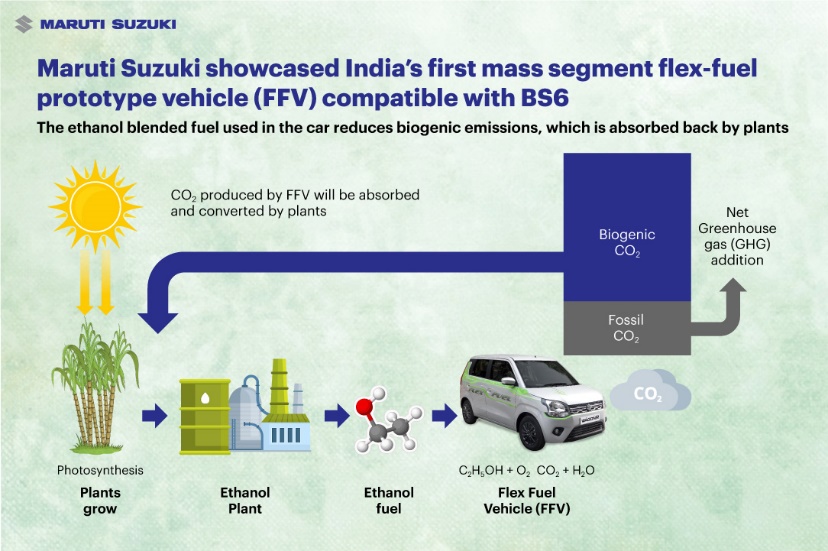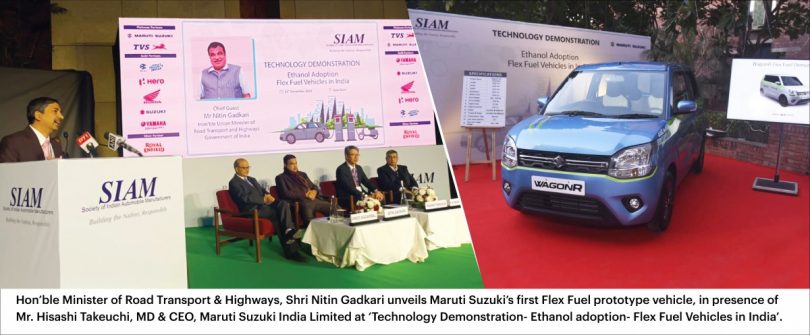Maruti Suzuki India Limited has showcased the WagonR Flex Fuel prototype in New Delhi. This car is the country’s first mass-market flex fuel car. The WagonR is compatible with a blend of ethanol and petrol from 20% (E20) all the way up to 85% (E85). The Minister of Road Transport & Highways, Nitin Gadkari, was present at the unveiling. This WagonR was designed and developed by local engineers with the support of Suzuki Motor Corporation Japan.
What is the WagonR Flex Fuel Prototype?
This WagonR is equipped with an upgraded engine that is designed to handle the high ethanol blend of petrol. To make this engine compatible with high ethanol blend, few modifications were done on the car. These include heated fuel rail for cold start, ethanol sensor to detect percentage of ethanol blend, and overall upgradation of mechanical bits to ensure additional durability. Further, Maruti Suzuki has developed engine management systems to comply with the upcoming and more stringent BS6 Phase 2 norms.
The plan is to evaluate extensively the use case of such a car for the Indian conditions before fully committing to the same.
Benefits of the Flex Fuel WagonR
It is claimed that the prototype vehicle will help reduce greenhouse gas emissions from the exhaust by 79 percent when compared to a conventional WagonR. Additionally, as part of the Niti Aayog’s ‘Roadmap for Ethanol Blending in India 2020-25’, the ethanol-based vehicles will be promoted by planning for production and utilisation of ethanol for automotive applications.
Ethanol Fuel benefits
Apart from the benefits like cost effectiveness and lower emission, the biggest advantage would be the fact that ethanol is produced from processing of crop waste. India is the largest producer and consumer of sugar and the world’s second largest sugar exporter. This move will help reduce dependency on imported fuel.
Government’s focus on alternative fuels
The Indian Government has focused on promoting clean fuel vehicles. These include electric, electric hybrid, CNG, BioGas, BioDiesel and more. Maruti has already committed to make its entire range of vehicles compliant for E20 fuel by March 2023.
Also Read – Maruti Suzuki wants to push for Ethanol-powered cars



